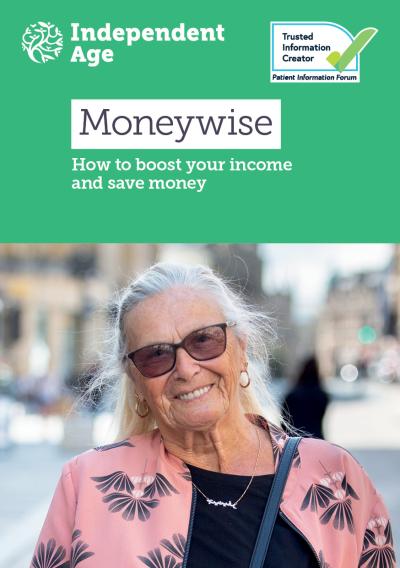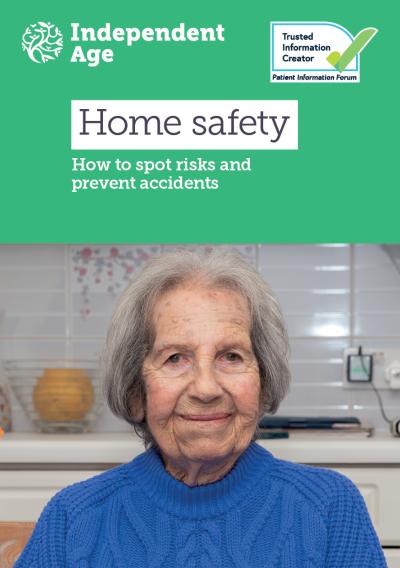Related publications

Moneywise

Home security

Before you buy or renew your insurance policies – whether you’re looking for home, car or travel insurance – it may be worth shopping around to see if you could save money and get a better deal.
When it comes to insurance, don’t just take the first deal you find or accept a renewal offer from your existing provider automatically. You can make significant savings by shopping around and comparing prices. It doesn’t have to take long: you can do it online or with just a few phone calls.
From 1 January 2022 insurers are no longer allowed to charge more to existing customers renewing their home or car insurance than to new customers. However, it's still worth shopping around because other companies may offer you a better deal than your current one. And the new rules don't apply to other types of insurance, such as travel, pet or boiler breakdown – so it's definitely worth checking what's available when renewing those.
Even if you don’t want to change insurer, it’s worth looking at other policies so you can try to negotiate a better deal with your current provider.
You can use price comparison websites or call different insurance providers to get quotes. Bear in mind that some insurance providers don’t appear on price comparison sites, or their special deals might not be listed. Ask your bank or building society if they offer insurance products too.
If you use a price comparison site:
MoneyHelper has more information about using comparison sites.
If you have complex needs or special requirements, it’s better to contact insurance providers directly, or use an insurance broker or a financial adviser. A broker may be able to give you expert advice. They earn their money from commission, so they won’t charge a fee. You can find a broker on the British Insurance Brokers Association website. You can search for a financial adviser via the Society of Later Life Advisers.
With any insurance policy, check the terms and conditions and any exclusions (things that aren’t covered) before you buy. Check the excesses as well. An excess is the amount you agree to pay in the event of a claim, before the insurance provider pays anything. Increasing your excess may result in a cheaper policy, but can leave you out of pocket if you have to make a claim.
When you buy or renew your home insurance policy, base your decision on the cover provided, not just the price. The cheapest policy might not be right for you if it has a high excess or doesn't cover what you want, for example.
Buildings insurance
Buildings insurance covers damage to the structure of your home, such as the walls, windows, and any permanent fixtures such as a toilet or fitted kitchen. If you own your home, you’ll need buildings insurance. It’s usually a condition of your mortgage, but you should have protection even if you own your home outright. If it’s a leasehold flat, the buildings may be insured by the landlord who owns the freehold. Check your lease to find out who’s responsible.
You need to insure yourself for the amount it would cost to completely rebuild your home. This is usually less than the sale price of your home. You can find advice about working out the cost of rebuilding your home on the Association of British Insurers website, or by using a rebuilding cost calculator.
Contents insurance
Contents insurance covers your belongings in case of theft, or damage caused by fire or flooding. Buildings and contents insurance are often sold together, but unlike buildings insurance, you do not need contents insurance to buy a house. If you’re renting, you don’t need buildings cover but you should consider taking out contents insurance for your peace of mind.
You may be able to reduce your home insurance premiums if you have good security, such as alarms or good quality locks, or if you’re in a Neighbourhood Watch scheme. Some companies offer cheaper policies for older people, who may be considered lower risk.
When you take out a policy, be honest about the security that you have and how you use it. If your home is broken into and you weren’t using the measures you said you had, your insurer may reject all or part of your claim. Check the small print or phone your insurance company to find out what level of security your policy requires.
Make sure you understand what the policy covers. For example, does it offer new for old to cover the cost of replacing items? Are there limits to the amount you can claim? MoneyHelper has a guide to what a good contents insurance policy looks like.
When buying home insurance, compare levels of cover and check the exclusions. The following may not be included as standard:
MoneyHelper has more information on getting a good deal.
All drivers must have car insurance. The minimum level of cover you need is third party insurance, which means you’re covered if you injure someone or damage another car. However, the cheapest policy isn’t always the best and a fully comprehensive policy may be better value.
Older drivers may have to pay more. Your premiums will usually start to increase once you're 70, and go up significantly after the age of 80. It’s worth taking the time to research your options. Don’t leave it until the renewal date.
You may be able to reduce your premiums if:
Check any add-ons such as breakdown cover. You may already have this, through your bank account for example, or you may be able to get it cheaper elsewhere.
MoneyHelper has a guide to what makes a good car insurance policy.
For more general information about driving, see our webpage Driving in later life.
Travel insurance can become more expensive as you get older, especially if you have a medical condition or disability. You must declare any pre-existing medical conditions or you may not be covered, even if you’re not currently affected by your condition.
Contact organisations that deal with your condition or disability for advice. It may be worth using a broker to help you find the best policy. MoneyHelper has more information about travel insurance for over 65s and medical conditions.
If you’re travelling in Europe, a European Health Insurance Card (EHIC) or UK Global Health Insurance Card (GHIC) will entitle you to free or reduced-cost healthcare, but this is not the same as travel insurance. It won’t cover any private healthcare costs or the cost of travel back home in an emergency, for example. If you need to apply for a new health insurance card, the GHIC will replace the EHIC for most people.
Travel insurance typically covers:
MoneyHelper has information about what to look for in a good travel insurance policy.
Buy your insurance as soon as you’ve booked your travel so you’re covered if you need to cancel. However, be wary of buying insurance that’s offered with your holiday. You may get better and cheaper cover elsewhere. Your bank may offer free travel insurance with your account, but you should check the terms and conditions to make sure you’re covered.
If you have a complaint about an insurance provider, try to resolve it with them first. If you're not satisfied with their response, you can take your complaint to the Financial Ombudsman.
For more information about the different types of insurance you might want to consider and where you can get help to get the insurance that's right for you, visit MoneyHelper.